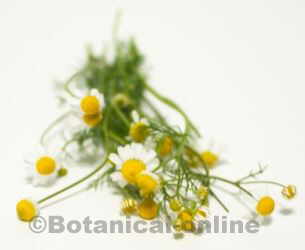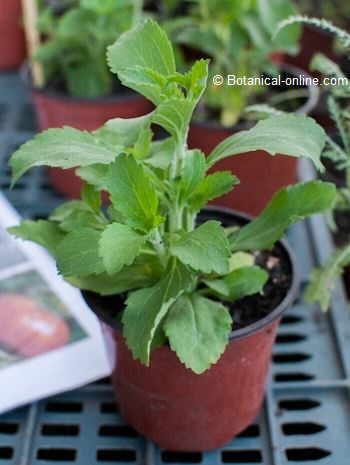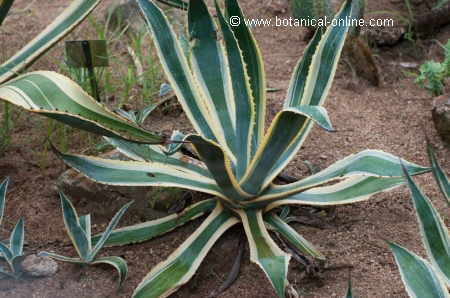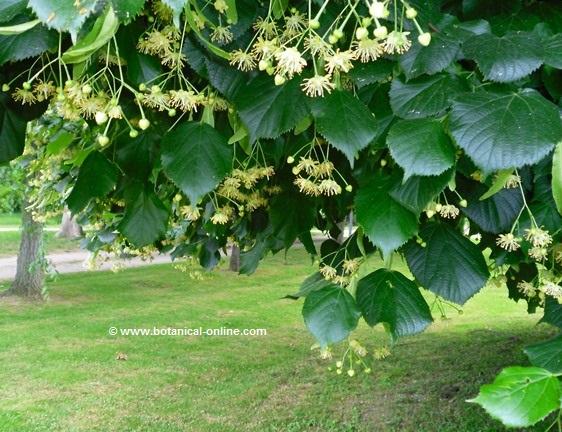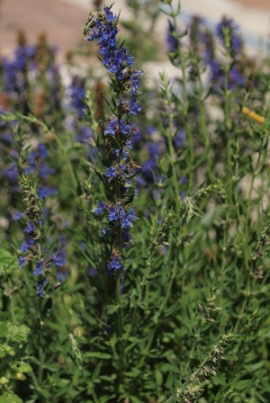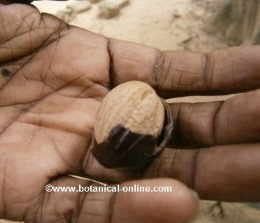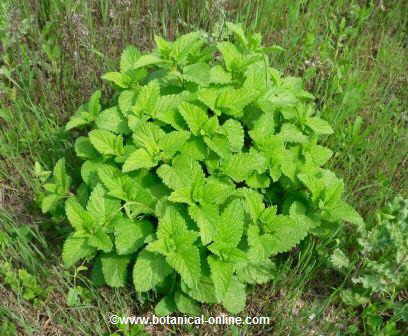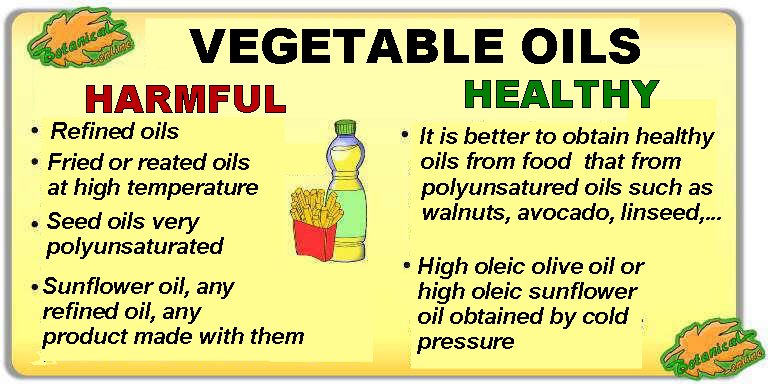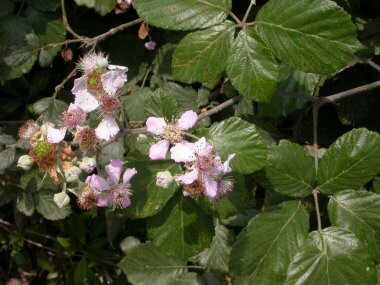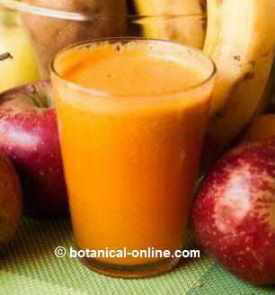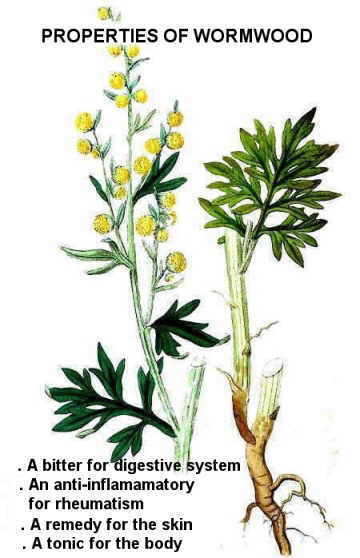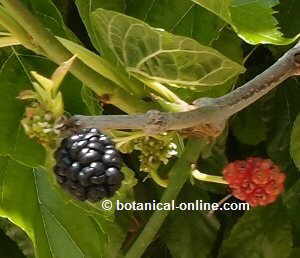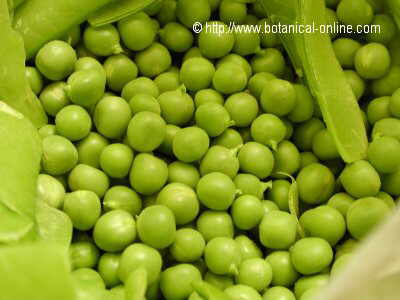Contents [show]
Plants for the stomach
MEDICINAL PLANTS THAT FAVOR DIGESTION
Phytotherapy: Herbal remedies to digest better
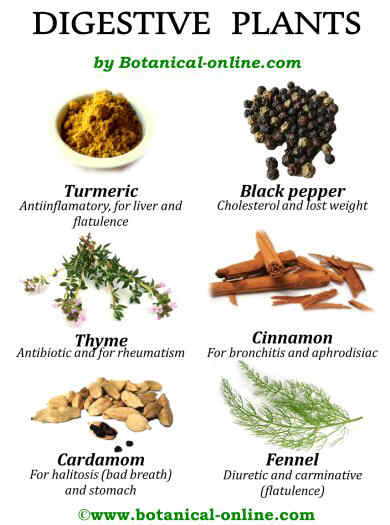 Some digestive plants and their properties
Some digestive plants and their propertiesThe treatment of poor digestion is aimed at regulating the functioning of the digestive tract for proper digestion to occur.
These remedies will support the traditional treatment and will be applied to solve problems of poor digestion once your specialist has made a proper diagnosis, demonstrating nothing “serious” is actually affecting your stomach.
What to take into account
If symptoms do not disappear in a couple of weeks, we will return to the doctor for a new medical checkup.
It is mandatory to visit the doctor if:
- We detect blood in the stool or vomiting with blood occurs.
- If we notice a sudden weight loss
- If the skin turns yellow
- If there is chest pain or back pain or other symptoms that can refer to a heart attack
- If sudden changes on the indigestion symptoms take place.
SUITABLE MEDICINAL PLANTS FOR GOOD DIGESTION
Phytotherapy in the treatment of poor digestion is based of using those plants with the following aims:
- Tranquilizing plants to prevent indigestion problems caused by stress, anxiety or emotional problems.
- Digestive plants to relieve intestinal irritation, the feeling of fullness or flatulence.
- Stimulant plants, that, with their bitter principles, increase the production of saliva, whet the appetite and produce a greater amount of gastric juices and bile, favoring the digestion.
- Antiheartburn plants that help to neutralize the excess of acidity.
The best plants for the stomach
Among the main plants suitable for the stomach we will include the following:
- Camomile: (Matricaria chamomilla) For its antiinflammatory, antispasmodic and carminative properties, chamomile is one of the main remedies for sensitive stomachs. Chamomile tea will help to shrink the stomach irritation or ulcer, help calm the cramping and expel excess of gases that cause bloating. (Infusion of a spoonful of dried flowers per cup of water. Take a couple of cups a day)
- Yarrow: (Achilea millefolium) Flavonoids give it very useful antispasmodic properties, in case of “intestinal cramps” while the bitter principles give digestive properties that are suitable for indigestion, heartburn or vomiting. (See how to take it and its potential toxicity in the full study of the plant)
- Stevia (Stevia rebaudiana) Its richness in fiber, along with citric and malic acids, magnesium and calcium, provide the stevia slightly laxative properties (Infusion of 1 tsp of stevia per cup, three times daily)
- Tarragon (Artemisia dracunculus) Indicated to treat poor digestion, bloating or flatulence treatment, to relieve stomach cramps and colic caused by gas (Use it as a condiment or infusion; 5g. Dried leaves in 250ml of water. Take a glass after every meal for its digestive and carminative properties)
- Mint (Menta piperita) Mint is one of the most comprehensive remedies for stomach problems. In addition to preventing vomiting after large meals, it prevents spasms and increases the production of bile juices, so that, in general, it helps digestion. As with chamomile, it is recommended not to exceed or prolong the therapeutic doses because this can produce the opposite effect, leading to stomach irritation. (Infusion of a spoonful of dried plant per cup of water. Take a couple of cups a day.)
- Wild celery (Angelica archangelica): Effective for these uses is as a tea, taken after meals.
- Mango (Mangifera indica) Very suitable for stomach problems caused by nerves in the stomach, such as vomiting, indigestion, flatulence, chronic constipation, cramps, etc.., Ingestion of mango juice helps to soothe the stomach and prevent these reactions.
- Agave (Agave americana) The infusion of dried maguey leaves can aid digestion. (Infusion of 5 tablespoons of dried leaves per liter of water. Take four cups with a little honey.)
- Penny royal (Mentha pulegium) It richness in terpenes give it antispasmodic properties, whereas rosmarinic acid and salicylic acid, together with carvacrol, limonene and cineole provide it with antispasmodic properties. This makes it very interesting in the treatment of stomach pains caused by poor digestion when the stomach cramps are cause because of colic or excessive flatulence.
The use of this plant helps soothe the stomach: Infusion of 2 tablespoons of dried leaves or 4 tablespoons of fresh leaves in one liter of water. Take a couple of cups a day. Do not to exceed this amount
- Linden(Tilia sp.) Linden is an effective remedy against indigestion and heartburn. Applied in the form of tea it can help to better digest food and reduce gastric reflux in the esophagus. (Infusion of half a teaspoon of dried flowers per cup of water. Take a couple of cups a day after meals)

Linden leaves and flowers
- Agrimony (Agrimonia eupatoria) The antiinflammatory capacity of tannins, flavonoids and acids is extremely effective in the treatment of many gastrointestinal problems. Liverwort preparations are capable of solving problems of poor digestion in the presence of flatulence, heartburn, or gastritis. (Infusion of a teaspoon of dried flowers per cup of water. A couple of cups a day.)
- Thyme (Thymus vulgaris): It is a digestive plant, preventing gastric spasms, intestinal cramps, and flatulence.
Plants especially suitable for flatus
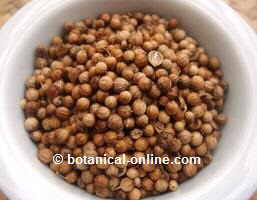
Coriander helps you expel flatulence
- Fennel (Foeniculum vulgare) is used to calm the stomach, diminish flatulence, prevent intestinal spasms, and whet the appetite. (Infusion of a spoonful of nuts per cup of water. Take two or three cups a day)
- Cumin: (Cuminum cyminum) It is one of the best carminative to expel excessive air and sooth your stomach.
- Caraway (Carum carvi) Caraway is one of the richest plant in carvone, an aromatic substance present in the essential oil with carminative properties (2 grams of seeds (half a teaspoon) whole or crushed, per cup of water. Take a cup after meals)
- Coriander: (Coriandrum sativum) Another very important carminative. It Is able to relieve flatulence and prevent stomach cramps. (A couple of cups a day before meals of the infusion of a pinch of fruits per cup of water)
- Hyssop (Hyssopus officinalis) Because its carminative and antiflatulence properties. (Infusion: 1 teaspoon of flowering tops per cup of water, 3 cups a day)

Photo of hyssop plant
- Anise (Pimpinella anisum) is one of the best known carminative to eliminate flatulence. Its anethole content helps digest food better. (Infusion of a spoonful of seeds per cup of water. Drink two glasses a day) (50% maceration of crushed dry seeds with dried root of gentian. Maintain the mixture to macerate for 10 days. Take a spoonful before eating)
- Clove (Eugenia Caryophyllata) (Make an infusion of the plant, available in pharmacies or herbalists, 15 g / liter. Drink a cup after meals)
- Pepper (Piper nigrum) Pepper increases stomach acid secretions, so this pungent spice is used as appetizer and digestive. It is indicated for people with poor appetite. This spice also helps the gastric emptying and therefore can be recommended for healthy people with slow digestion. (Add a bit of pepper to your food. Maximum 5 g daily)
| Mixed infusion to eliminate flatulence and bloatingFennel, cumin, coriander and anise are, each separately, the best remedies to relieve swelling caused by the accumulation of gases in the digestive system caused by poor digestion. Combining all three in the same preparation increases their medicinal properties. Mix equal parts of the fruits of all these plants. When we have the feeling of having a bloated stomach, we will make a tea with a teaspoon of this mixture per cup of water. |
Plants for lazy stomachs: Bitter principles
Indigestion is sometimes caused by lack of gastric juices or bile, which determines a lengthening of the digestive process that results in the form of bloating, pain, flatulence, etc. Eating a variety of plants containing bitter principles helps facilitate digestion. (More information on bitter taste)
- Turmeric (Curcuma longa) In particular, turmeric is a spice that seems naturally designed for the stomach because it stimulates mucus secretion and improves digestion. (Add turmeric to your dishes)
- Nutmeg (Myristica fragrans) Its components allow to stimulate gastric acid and promote the breakdown of food which aids digestion. (3 g of powdered nutmeg divided in three doses. Spread on food after the three main meals)

Photo of nutmeg seed. When ground, it is used as a spice
- Guanabana or soursop (Annona muricata) Fruit juice can help improve digestion by its cholagogue and choleretic effect, which stimulates the production of bile.
- Vanilla (Vanilla planifolia) Vanilla has strengthening effect and stimulates digestive functions (Use vanilla as a food spice)
Plants for too active stomachs
Sometimes there are people with stomachs too used to produce an excess of gastric juices which creates a feeling of acidity and heartburn. We may use certain plants that can aid to neutralize the excess of acidity. Among these plants we include:
- Ginger: (Zingiber officinale) Better known as antiemetic, by stimulating the pancreas, increases the production of enzymes that promote digestion and prevent the emergence of a number of side effects associated with poor absorption of them. (See full study of the plant to ensure its toxicity.)
- Liquorice: (Glycyrrhyza glabra) for sensitive stomachs licorice is an adequate remedy to protect the stomach. Protects the delicate mucosa of the organ and prevent it to become irritated or inflamed. It is one of the best remedies for heartburn. (See study to ensure its use and possible toxicity.)
- Hibiscus: (Hibiscus rosasinensis) (Infusion of a teaspoon of the dried plant. Take a couple of cups a day)
- Oak (Quercus ilex) (Roast a handful of acorns, grind very fine and make “coffee” with roasted acorn powder. Do not exceed two cups a day)
Plants for nervous stomachs
- Lemon balm: (Melissa officinalis) It has a calming power on the stomach to help prevent stomach cramps. At the same time, for its carminative properties, helps expel gas. (Infusion of a spoonful of dried plant per cup of water. Take a couple of cups a day)

Photo of lemon balm plant
- Hops (Humulus lupulus) It helps improve digestion when there is a psychological cause that causes poor digestion. (Maceration of 3 tablespoons of dried flowers in a quart of water for a full day. Drink a glass before meals)
- Basil (Ocimum basilicum) It is one of the plants most recommended for the nerves, especially when they affect the stomach. It can be used as a condiment or making a tea with a teaspoon of dried plant per cup of water. Take two cups a day.
- Lavender (Lavandula officinalis, lavandula latifolia) The antispasmodic and sedative properties of lavender or lavender flowers can be harnessed to the problems of “nervous stomach”, causing indigestion on many occasions. (Infusion for 10 minutes of a teaspoon of dried flowers per cup of water. Take 3 cups a day between meals)
- Poppy (Papaver rhoeas) (Infusion of half a teaspoon of dried petals per cup of water. Drink a cup before bedtime)
![]() More information on indigestion.
More information on indigestion.

